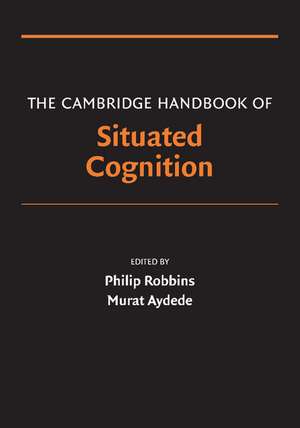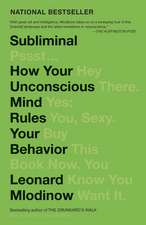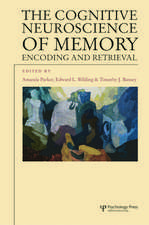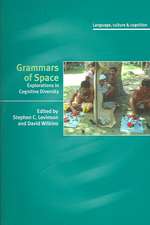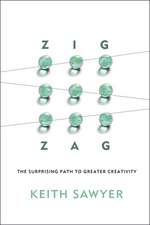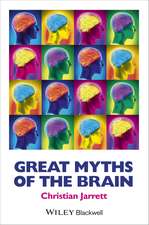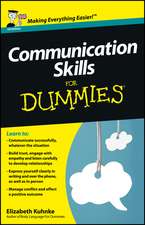The Cambridge Handbook of Situated Cognition: Cambridge Handbooks in Psychology
Editat de Philip Robbins, Murat Aydedeen Limba Engleză Paperback – 2 noi 2008
| Toate formatele și edițiile | Preț | Express |
|---|---|---|
| Paperback (1) | 484.16 lei 43-57 zile | |
| Cambridge University Press – 2 noi 2008 | 484.16 lei 43-57 zile | |
| Hardback (1) | 772.00 lei 43-57 zile | |
| Cambridge University Press – 2 noi 2008 | 772.00 lei 43-57 zile |
Din seria Cambridge Handbooks in Psychology
- 23%
 Preț: 1254.71 lei
Preț: 1254.71 lei - 11%
 Preț: 449.49 lei
Preț: 449.49 lei -
 Preț: 502.52 lei
Preț: 502.52 lei -
 Preț: 501.96 lei
Preț: 501.96 lei - 8%
 Preț: 426.60 lei
Preț: 426.60 lei -
 Preț: 486.56 lei
Preț: 486.56 lei - 5%
 Preț: 441.42 lei
Preț: 441.42 lei - 9%
 Preț: 1282.42 lei
Preț: 1282.42 lei -
 Preț: 494.25 lei
Preț: 494.25 lei - 8%
 Preț: 429.69 lei
Preț: 429.69 lei - 5%
 Preț: 397.85 lei
Preț: 397.85 lei - 23%
 Preț: 1246.12 lei
Preț: 1246.12 lei - 5%
 Preț: 439.60 lei
Preț: 439.60 lei - 19%
 Preț: 494.19 lei
Preț: 494.19 lei - 5%
 Preț: 718.47 lei
Preț: 718.47 lei -
 Preț: 511.59 lei
Preț: 511.59 lei - 8%
 Preț: 426.60 lei
Preț: 426.60 lei - 8%
 Preț: 427.05 lei
Preț: 427.05 lei - 8%
 Preț: 425.42 lei
Preț: 425.42 lei -
 Preț: 411.90 lei
Preț: 411.90 lei -
 Preț: 272.34 lei
Preț: 272.34 lei - 8%
 Preț: 425.42 lei
Preț: 425.42 lei - 9%
 Preț: 594.27 lei
Preț: 594.27 lei -
 Preț: 511.21 lei
Preț: 511.21 lei - 23%
 Preț: 1248.79 lei
Preț: 1248.79 lei -
 Preț: 370.88 lei
Preț: 370.88 lei - 8%
 Preț: 424.41 lei
Preț: 424.41 lei -
 Preț: 374.90 lei
Preț: 374.90 lei - 8%
 Preț: 427.49 lei
Preț: 427.49 lei -
 Preț: 511.59 lei
Preț: 511.59 lei - 5%
 Preț: 1538.86 lei
Preț: 1538.86 lei - 23%
 Preț: 2195.06 lei
Preț: 2195.06 lei - 8%
 Preț: 489.88 lei
Preț: 489.88 lei - 8%
 Preț: 428.36 lei
Preț: 428.36 lei -
 Preț: 488.47 lei
Preț: 488.47 lei - 9%
 Preț: 850.10 lei
Preț: 850.10 lei - 8%
 Preț: 430.05 lei
Preț: 430.05 lei -
 Preț: 497.35 lei
Preț: 497.35 lei -
 Preț: 283.03 lei
Preț: 283.03 lei
Preț: 484.16 lei
Nou
Puncte Express: 726
Preț estimativ în valută:
92.65€ • 96.97$ • 77.11£
92.65€ • 96.97$ • 77.11£
Carte tipărită la comandă
Livrare economică 31 martie-14 aprilie
Preluare comenzi: 021 569.72.76
Specificații
ISBN-13: 9780521612869
ISBN-10: 0521612861
Pagini: 526
Ilustrații: 3 tables
Dimensiuni: 178 x 254 x 28 mm
Greutate: 1.09 kg
Ediția:1
Editura: Cambridge University Press
Colecția Cambridge University Press
Seria Cambridge Handbooks in Psychology
Locul publicării:New York, United States
ISBN-10: 0521612861
Pagini: 526
Ilustrații: 3 tables
Dimensiuni: 178 x 254 x 28 mm
Greutate: 1.09 kg
Ediția:1
Editura: Cambridge University Press
Colecția Cambridge University Press
Seria Cambridge Handbooks in Psychology
Locul publicării:New York, United States
Cuprins
Part I. Backdrop: 1. A short primer on situated cognition Philip Robbins and Murat Aydede; 2. Scientific antecedents of situated cognition William J. Clancey; 3. Philosophical antecedents of situated cognition Shaun Gallagher; Part II. Conceptual Foundations: 4. How to situate cognition: letting nature take its course Robert A. Wilson and Andy Clark; 5. Why the mind is still in the head Fred Adams and Kenneth Aizawa; 6. Innateness and the situated mind Robert Rupert; 7. Situated representation Mark Rowlands; 8. Dynamics, control, and cognition Chris Eliasmith; 9. Explanation: mechanism, modularity, and situated cognition William Bechtel; 10. Embedded rationality Ruth Millikan; Part III. Empirical Developments: 11. Situated perception and sensation in vision and other modalities: from an active to a sensorimotor account Erik Myin and Kevin O'Regan; 12. Spaces of thought Barbara Tversky; 13. Remembering John Sutton; 14. Situating concepts Lawrence W. Barsalou; 15. Problem-solving and situated cognition David Kirsh; 16. The dynamic interactions between situations and decisions Jerome R. Busemeyer, Ryan K. Jessup and Eric Dimperio; 17. Situating rationality: ecologically rational decision making with simple heuristics Henry Brighton and Peter M. Todd; 18. Situativity and learning R. Keith Sawyer and James G. Greeno; 19. Language in the brain, body, and world Rolf A. Zwaan and Michael P. Kaschak; 20. Language processing embodied and embedded Michael Spivey and Daniel Richardson; 21. Situated semantics Varol Akman; 22. Is consciousness embodied? Jesse J. Prinz; 23. Emotions in the wild: the situated perspective on emotion Paul Griffiths and Andrea Scarantino; 24. The social context of cognition Eliot R. Smith and Frederica R. Conrey; 25. Cognition for culture Michael Tomasello and Felix Warneken; 26. Neuroethology: from morphological computation to planning Malcolm A. MacIver.
Recenzii
“Situated cognition has become a hot topic in cognitive science, encompassing a broad range of disciplines and theories concerning the relationship between mind, body and the world. The Cambridge Handbook provides an indispensable guide to the best ideas and controversies concerning the problems of embodied, embedded, distributed and situated cognition.
Publication of the Handbook is a landmark in bringing together the foremost theorists in a comprehensive, interdisciplinary collection. The chapters are original overviews concerning historical, foundational, theoretical and empirical issues from philosophy, neuroscience, linguistics, psychology, AI and robotics.
The collection is a definitive resource for understanding the central issues in cognitive science today concerning mental representations, their meaning and their grounding interactions with the body and the external world.”
—Dr. Peter Slezak, University of New South Wales
"...If you are interested in exploring what all the buzz is about concerning terms like situated cognition, situativity, action theory, embodied cognition, embodiment, and distributed cognition, then The Cambridge Handbook of Situated Cognition is worth your perusal...tantalizing ideas and pieces of evidence all in search of a testable theory of cognition..."
—Richard E. Mayer, PsycCRITIQUES [September 2, 2009, Vol. 54]
"... A fascinating feature of the Handbook is that there is tremendous variability amongst contributors in terms of their willingness to adopt the more radical consequences of the situated approach... Given that the more radical ideas presented in The Cambridge Handbook of Situated Cognition have the potential to completely redefine the proper domain of cognitive psychology and cognitive science, it is essential reading..."
—Michael Dawson, Canadian Psychology/Psychologie Canadienne
"...This volume is a rich source of ideas and references for further exploration, covering every aspect of cognitive activity and engaging the full range of supporters and opponents of the basic ideas. References are listed separately for each chapter, but there is an integrated index. The work will be essential background for any course in cognitive science, and it can also serve as a convenient desk reference for researchers in AI, robotics, and other systems that require careful consideration of the relation between thinking and the world."
—H. Van Dyke Parunak, Computing Reviews
Descriere
This book is a guide to a movement in cognitive science showing how environmental and bodily structure shapes cognition.
